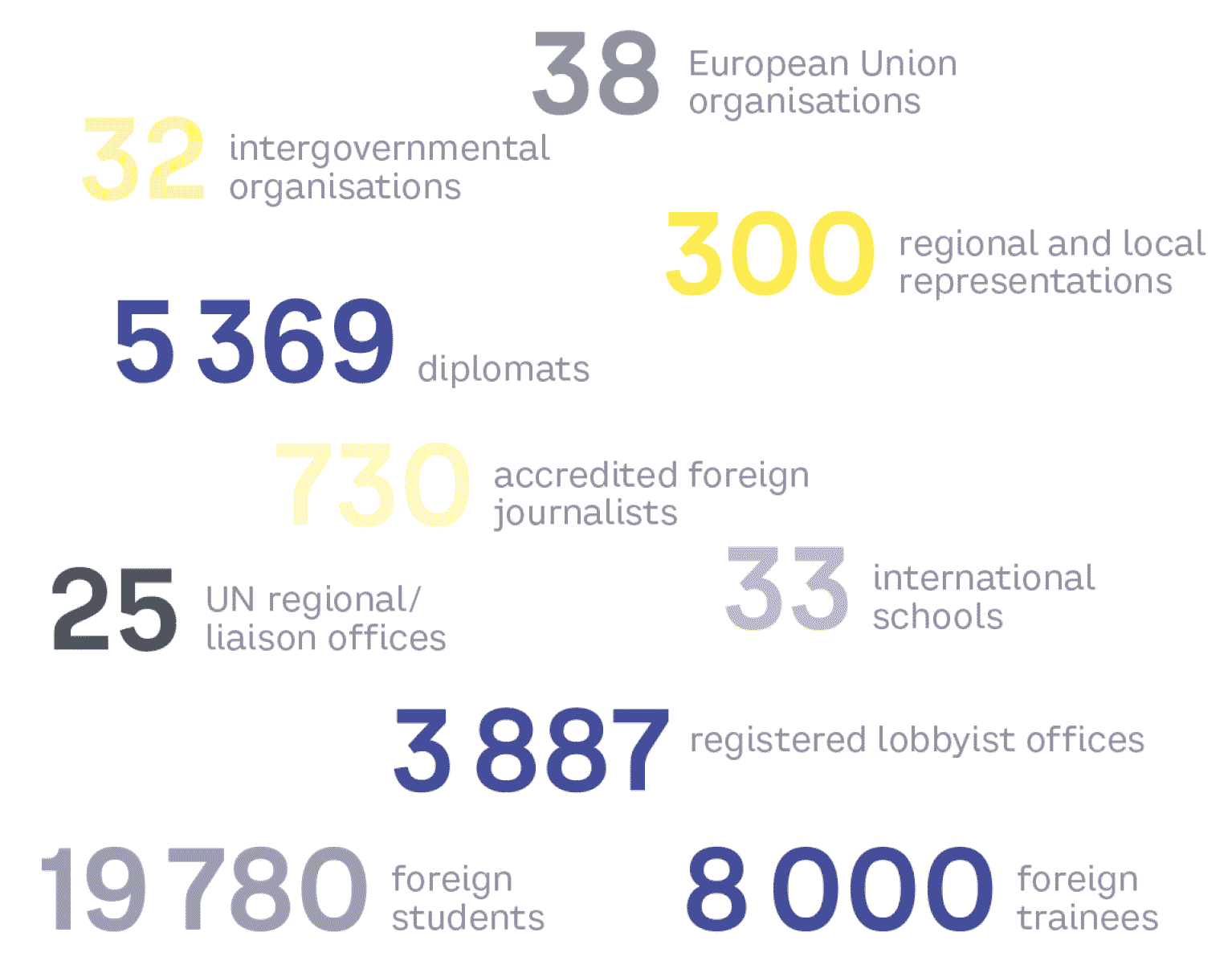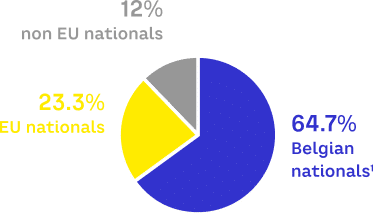

The presence of numerous EU institutions and international organisations is part of what makes Brussels such a special place. This European and international affairs sector, as well as the thousands of people who work in it, make a meaningful contribution to the social and economic dynamism of the Region. Our role as capital of Europe give Brussels a prestigious place on the world stage. However, this unique situation also brings its own challenges.
The host region policy is an attempt to answer those questions and resolve those challenges. It can be seen as a hospitality policy for the supranational and intergovernmental organisations which have their headquarters or representation in the Brussels-Capital Region, including diplomatic missions and regional or local representations. The Commissioner for Europe and International Organisations is appointed and mandated by the regional government with a mission to drive and implement the host region policy. He represents the government and coordinates the host region policy under its authority.
In practice, the Commissioner and his team act in two main ways. On the one hand, we serve a function of institutional liaison. This means we are a single point of contact connecting the Brussels regional administrations with the European and international organisations on all issues related to their presence here. On the other hand, our Expat Welcome Desk offers information and tailored advice to the International Brusselers who move here to work in the European and international affairs sector.
This broad mission means that we operate across many policy areas, such as planning and urban development, mobility, population services, protocol, democratic participation, and security. We work within the broader context of the regional competences, but our work brings us into contact with municipal and federal authorities, as well as the European and international organisations in Brussels.
At first glance it can be difficult to see the boundaries of the host regional policy, as it crosses policy areas and connects with all levels of governance. Nevertheless, our mandate is not limitless, and it is useful to clarify some limits.
We are not responsible for the formal agreements and treaties which place the institutions in Brussels. This is a federal competence, managed by the Interministerial Committee for Host Nation Policy. Instead, we work within regional competences to welcome and anchor the European and international governance sector here in Brussels.
We do not lead or implement European or international policy on behalf of the Brussels-Capital Region. Nor do we represent the Region towards the EU institutions when it comes to EU legislation and policymaking. Instead, we managing the practical and human issues related to their presence in the Region.
We do not undertake any lobbying or advocacy towards the EU institutions and international organisations, nor do we help other organisations to do so. Instead, we aim to reinforce Brussels’ role as a governance hub and ensure that the sector’s development benefits everyone in Brussels.
The international players

Employment
The international presence generates up to 23.2% of regional employment.
Around 52 000 direct jobs :
The 5 main European institutions, agencies and bodies create the majority of these jobs. There are also thousands of jobs in the wider European and international affairs sector, including but not limited to:

Population
The impact of the international role of Brussels is more evident than ever in the composition of its population. After Dubai, Brussels-Capital Region is the most cosmopolitan city-region in the world:

1 including Belgian nationals with dual nationality.
TOP 5 FOREIGN NATIONALITIES IN BRUSSELS
FRANCE
64 218 residents
ROMANIA
41 858 residents
MOROCCO
34 984 residents
ITALY
33 718 residents
SPAIN
28 480 residents